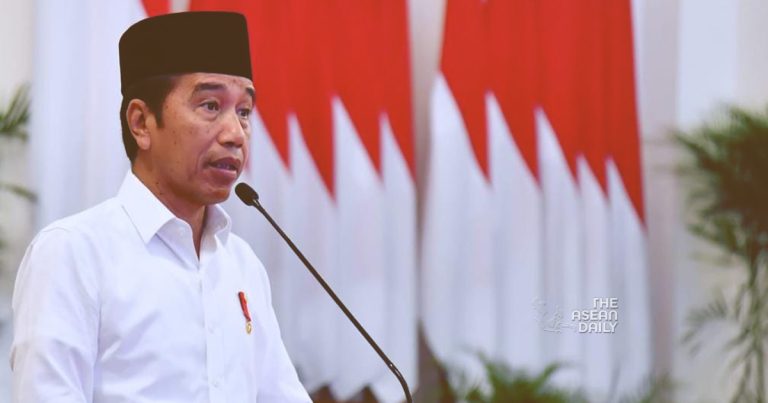30-1-2024 (JAKARTA) As Indonesia prepares for the upcoming presidential vote, incumbent president Joko ‘Jokowi’ Widodo is facing accusations of maneuvering to establish his own political dynasty. Despite being barred from a third term, Widodo remains immensely popular and is allegedly using his influence to position his sons in prominent political roles, a move that has raised concerns in a country known for its nepotistic politics.
Widodo’s eldest son was appointed as Indonesia’s youngest-ever vice presidential candidate last year, running alongside frontrunner and Defense Minister Prabowo Subianto. This move, along with Widodo’s brother-in-law and chief justice Anwar Usman’s controversial ruling that lowered the minimum age for candidates, paved the way for Prabowo’s running mate, Gibran Rakabuming Raka, the 36-year-old mayor of Surakarta city.
Even Widodo’s youngest son has ascended to the position of chairman of a political party, despite lacking prior experience. The high approval ratings of Widodo, who rose from humble beginnings to the presidency, have granted him significant influence over the upcoming February 14 vote, despite criticism that he is eroding democratic reforms that emerged after Indonesia’s transition from autocracy in the late 1990s.
Prabowo, who has previously lost to Widodo in two presidential elections, has seen his campaign gain momentum with Widodo’s son by his side. In a recent poll by Indikator Politik Indonesia, the 72-year-old defense chief polled at 45.8 percent, leading by more than 20 points over his nearest rival, former Jakarta governor Anies Baswedan.
Adding to the tension, Widodo has not supported the candidate chosen by his own Indonesian Democratic Party of Struggle (PDI-P), former Central Java governor Ganjar Pranowo, who currently ranks third in the polls. Widodo claims to remain impartial and support all candidates, despite his son’s imminent rise to become Indonesia’s youngest-ever vice president.
However, these actions have fueled concerns that Widodo is trying to maintain his influence in Indonesian politics, which has long been dominated by dynastic elites since the fall of dictator Suharto. Political expert Made Supriatma from the Singapore-based ISEAS-Yusof Ishak Institute states that the signs of heavy intervention are apparent, suggesting that if Prabowo and Gibran were to lose, it could mark the end of Widodo’s political influence.
Prabowo himself is the former son-in-law of Suharto, and Megawati Sukarnoputri, the leader of the PDI-P party, is the daughter of Indonesia’s first president, Sukarno. During a recent presidential debate, Anies accused Prabowo of owning land near the planned new Indonesian capital, Nusantara, leading to a defense of the defense minister by Widodo. This incident, along with a subsequent photo of the pair enjoying a meal together, has been seen by some Indonesian media as a “political maneuver.”
Despite allegations of building a dynasty, Widodo’s popularity remains largely unaffected. However, Ikrar Nusa Bhakti, Widodo’s former ambassador to Tunisia, believes that a more patient approach to positioning his children in the race would have been more prudent. Bhakti suggests that his son, Gibran, could have first become a governor, preserving Widodo’s political legacy while avoiding potential turmoil.
As the election draws near, it is evident that the issue of political dynasties has become a topic of discussion. Former vice president Jusuf Kalla sarcastically remarked in October that this would be a “child-loving” election due to Widodo’s son’s involvement. He further commented that other businessmen would likely follow suit, expressing their desire for their children to prosper and highlighting the competitive nature of the political landscape.




